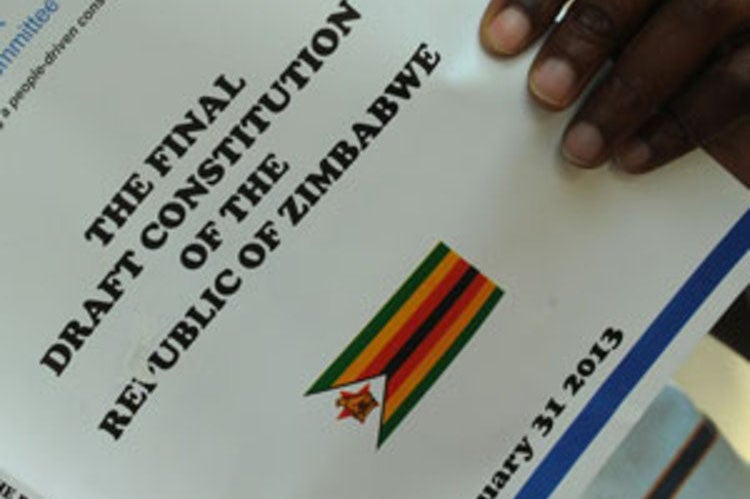
8.9.2024
4:30
President
Emmerson
Mnangagwa’s
quest
to
extend
his
term
beyond
the
constitutional
limit
in
2028
is
likely
to
face
resistance,
as
the
military,
which
is
the
traditional
political
power
broker
in
Zimbabwe
is
opposed
such
moves,
reported
The
NewsHawks.
While
Mnangagwa
has
repeatedly
declared
that
he
is
a
constitutionalist
and
will
not
seek
an
extension
beyond
2028,
critics
remain
skeptical
of
his
intentions.
The
NewsHawks
has
reported
that
military
sources
indicate
Mnangagwa
will
be
prevented
from
pursuing
any
constitutional
changes
aimed
at
prolonging
his
presidency,
despite
demands
from
his
party,
ZANU
PF.
The
report
suggests
that
the
military
will
leverage
its
institutional
and
hard
power
to
thwart
any
attempts
at
altering
the
succession
process.
The
NewsHawks
quoted
a
military
source
on
Friday
as
saying:
The
army
is
clear
on
this
issue.
Very
very
clear.
The
President
has
to
serve
his
constitutional
second
term
and
retire
in
2028.Let’s
not
forget
that
he
was
not
supposed
to
run
for
a
second
term
in
the
first
place
from
the
military
perspective.Although
publicly
he
seems
to
be
in
agreement
that
he
will
retire
in
2028,
in
political
circles
he
is
speaking
a
different
language
and
giving
different
signals,
clandestinely
encouraging
his
core
supporters
to
push
for
a
constitutional
amendment
for
him
to
stay
on
until
2030.That
has
no
takers
in
the
security
forces
beyond
a
few
individuals
who
agree
with
that
for
self-interest.
Even
among
the
public,
it
is
not
a
popular
proposal.
A
recent
report
by
the
local
think
tank
Zimbabwe
Democracy
Institute
says
the
military
will
not
remain
a
passive
observer
in
the
processes
of
selecting
a
new
leader
within
ZANU
PF
and,
ultimately,
in
the
country.
Reads
part
of
the
report:
It
is
abundantly
clear
that
the
military
has
played
a
decisive
role
in
Zimbabwean
politics.
As
ZANU
PF
continues
to
grapple
with
a
colossal
succession
battle,
the
role
of
the
military
in
intra-party
politics
will
become
apparent
in
the
decisive
phase,
although
at
this
moment
that
role
has
not
been
shown
overtly.Due
to
the
politico-military
nexus,
the
military
will
not
be
an
innocent
bystander
in
the
processes
to
select
a
new
leader
in
ZANU
PF
and
ultimately
of
the
Republic.It
is
highly
likely
that,
as
the
military
has
done
before,
it
will
exercise
veto
power
in
the
election
or
selection
of
the
ZANU
PF
leadership.According
to
the
military,
the
office
of
the
head
of
state
is
a
straitjacket
whose
incumbent
must
meet
certain
attributes,
particularly
possessing
military
credentials.The
same
credentials
can
be
said
to
also
apply
to
the
office
of
ZANU
PF
first
secretary.
Thus,
the
successor
to
President
Mnangagwa
is
likely
to
be
a
military
man,
not
a
civilian
politician.Whether
it
will
be
Vice-President
Chiwenga
or
not
is
a
subject
of
further
inquiry,
but
the
likelihood
of
a
military
man
or
military-backed
candidate
is
inevitable
and
inescapable.
Post
published
in:
Featured

